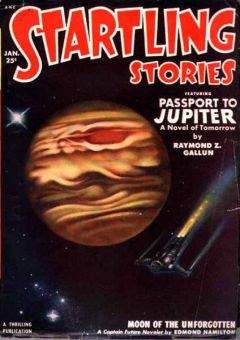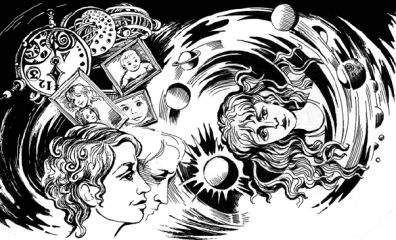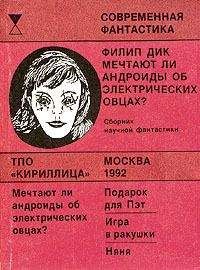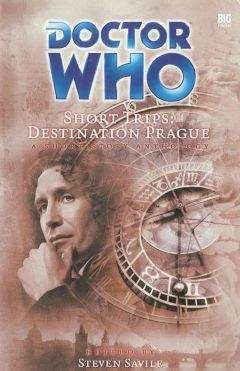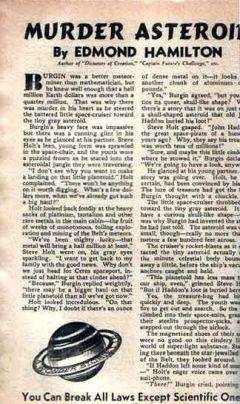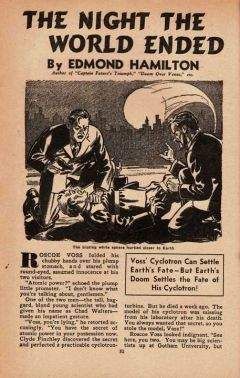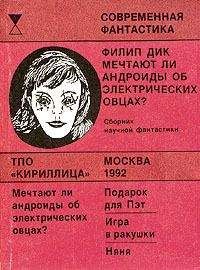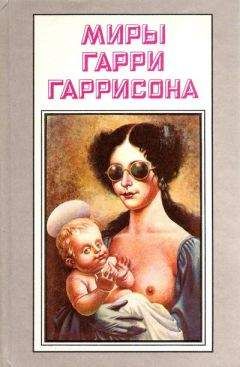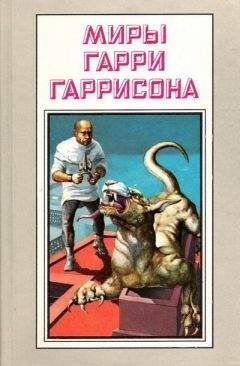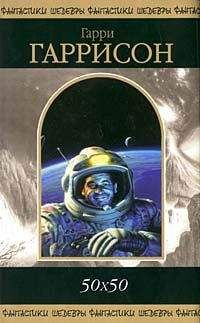Somerset Maugham - Sixty-Five Short Stories
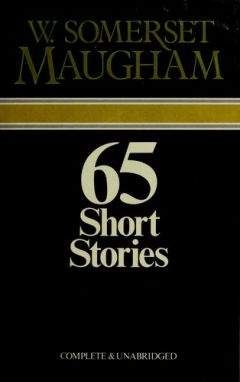
Скачивание начинается... Если скачивание не началось автоматически, пожалуйста нажмите на эту ссылку.
Жалоба
Напишите нам, и мы в срочном порядке примем меры.
Описание книги "Sixty-Five Short Stories"
Описание и краткое содержание "Sixty-Five Short Stories" читать бесплатно онлайн.
I think they were glad to see me, especially Mrs Low, for with nothing much to do but keep an eye on the house and the children, she was thrown very much on her own resources. There were so few white people on the island that the social life was soon exhausted; and before I had been there twenty-four hours she pressed me to stay a week, a month, or a year. On the evening of my arrival they gave a dinner-party to which the official population, the government surveyor, the doctor, the schoolmaster, the chief of constabulary, were invited, but on the following evening the three of us dined by ourselves. At the dinnerparty the guests had brought their house-boys to help, but that night we were waited on by the Lows' one boy and my travelling servant. They brought in the coffee and left us to ourselves. Low and I lit cheroots.
'You know that I've seen you before,' said Mrs Low.
'Where?' I asked.
'In London. At a party. I heard someone point you out to somebody else. In Carlton House Terrace at Lady Kastellan's.'
'Oh? When was that?'
'Last time we were home on leave. There were Russian dancers.'
'I remember. About two or three years ago. Fancy you being there!'
'That's exactly what we said to one another at the time,' said Low, with a slow, engaging smile. 'We'd never been at such a party in our lives.'
'It made a great splash, you know,' I said. 'It was the party of the season. Did you enjoy it?'
'I hated every minute of it,' said Mrs Low.
'Don't let's overlook the fact that you insisted on going, Bee.' said Low. 'I knew we'd be out of it among all those swells. My dress clothes were the same I'd had at Cambridge and they'd never been much of a fit.'
'I bought a frock specially at Peter Robinson's. It looked lovely in the shop. I wished I hadn't wasted so much money when I got there; I never felt so dowdy in my life.'
'Well it didn't much matter. We weren't introduced to anybody.'
I remembered the party quite well. The magnificent rooms in Carlton House Terrace had been decorated with great festoons of yellow roses and at one end of the vast drawing-room a stage had been erected. Special costumes of the Regency period had been designed for the dancers and a modern composer had written the music for the two charming ballets they danced. It was hard to look at it all and not allow the vulgar thought to cross one's mind that the affair must have cost an enormous amount of money. Lady Kastellan was a beautiful woman and a great hostess, but I do not think anyone would have ascribed to her any vast amount of kindliness, she knew too many people to care much for any one in particular, and I couldn't help wondering why she had asked to such a grand party two obscure and quite unimportant little persons from a distant colony.
'Had you known Lady Kastellan long?' I asked.
'We didn't know her at all. She sent us a card and we went because I wanted to see what she was like,' said Mrs Low.
'She's a very able woman,' I said.
'I dare say she is. She hadn't an idea who we were when the butler man announced us, but she remembered at once. "Oh, yes," she said, "you're poor Jack's friends. Do go and find yourselves seats where you can see. You'll adore Lifar, he's too marvellous." And then she turned to say how d'you do to the next people. But she gave me a look. She wondered how much I knew and she saw at once that I knew everything.'
'Don't talk such nonsense, darling,' said Low. 'How could she know all you think she did by just looking at you, and how could you tell what she was thinking?'
'It's true, I tell you. We said everything in that one look, and unless I'm very much mistaken I spoilt her party for her.'
Low laughed and I smiled, for Mrs Low spoke in a tone of triumphant vindictiveness.
'You are terribly indiscreet, Bee.'
'Is she a great friend of yours?' Mrs Low asked me.
'Hardly. I've met her here and there for fifteen years. I've been to a good many parties at her house. She gives very good parties and she always asks you to meet the people you want to see.'
'What d'you think of her?'
'She's by way of being a considerable figure in London. She's amusing to talk to and she's nice to look at. She does a lot for art and music. What do you think of her?'
'I think she's a bitch,' said Mrs Low, with cheerful but decided frankness.
'That settles her,' I said.
'Tell him, Arthur.'
Low hesitated for a moment.
'I don't know that I ought to.'
'If you don't, I shall.'
'Bee's got her knife into her all right,' he smiled. 'It was rather a bad business really.'
He made a perfect smoke-ring and watched it with absorption.
'Go on, Arthur,' said Mrs Low.
'Oh, well. It was before we went home last time. I was D.O. in Selangor and one day they came and told me that a white man was dead in a small town a couple of hours up the river. I didn't know there was a white man living there. I thought I'd better go and see about it, so, I got in the launch and went up. I made inquiries when I got there. The police didn't know anything about him except that he'd been living there for a couple of years with a Chinese woman in the bazaar. It was rather a picturesque bazaar, tall houses on each side, with a board walk in between, built on piles on the river-bank, and there were awnings above to keep out the sun. I took a couple of policemen with me and they led me to the house. They sold brass-ware in the shop below and the rooms above were let out. The master of the shop took me up two flights of dark, rickety stairs, foul with every kind of Chinese stench, and called out when we got to the top. The door was opened by a middle-aged Chinese woman and I saw that her face was all bloated with weeping. She didn't say anything, but made way for us to pass. It wasn't much more than a cubby-hole under the roof; there was a small window that looked on the street, but the awning that stretched across it dimmed the light. There wasn't any furniture except a deal table and a kitchen chair with a broken back. On a mat against the wall a dead man was lying. The first thing I did was to have the window opened. The room was so frowsty that I retched, and the strongest smell was the smell of opium. There was a small oil-lamp on the table and a long needle, and of course I knew what they were there for. The pipe had been hidden. The dead man lay on his back with nothing on but a sarong and a dirty singlet. He had long brown hair, going grey, and a short beard. He was a white man all right. I examined him as best I could. I had to judge whether death was due to natural causes. There were no signs of violence. He was nothing but skin and bone. It looked to me as though he might very likely have died of starvation. I asked the man of the shop and the woman a number of questions. The policeman corroborated their statements. It appeared that the man coughed a great deal and brought up blood now and then, and his appearance suggested that he might very well have had T.B. The Chinaman said he'd been a confirmed opium smoker. It all seemed pretty obvious. Fortunately cases of that sort are rare, but they're not unheard of-the white man who goes under and gradually sinks to the last stage of degradation. It appeared that the Chinese woman had been fond of him. She'd kept him on her own miserable earnings for the last two years. I gave the necessary instructions. Of course I wanted to know who he was. I supposed he'd been a clerk in some English firm or an assistant in an English store at Singapore or Kuala Lumpur. I asked the Chinese woman if he'd left any effects. Considering the destitution in which they'd lived it seemed a rather absurd question, but she went to a shabby suit-case that lay in a corner, opened it, and showed me a square parcel about the size of two novels put together wrapped in an old newspaper. I had a look at the suit-case. It contained nothing of any value. I took the parcel.'
Low's cheroot had gone out and he leaned over to relight it from one of the candles on the table.
'I opened it. Inside was another wrapping, and on this, in a neat, well-educated writing: To the District Officer, me as it happened, and then the words: please deliver personally to the Viscountess Kastellan, 53 Carlton House Terrace, London, sw. That was a bit of a surprise. Of course I had to examine the contents. I cut the string and the first thing I found was a gold and platinum cigarette-case. As you can imagine I was mystified. From all I'd heard the pair of them, the dead man and the Chinese woman, had scarcely enough to eat, and the cigarette-case looked as if it had cost a packet. Besides the cigarette-case there was nothing but a bundle of letters. There were no envelopes. They were in the same neat writing as the directions and they were signed with the initial J. There were forty of fifty of them. I couldn't read them all there, but a rapid glance showed me that they were a man's love letters to a woman. I sent for the Chinese woman to ask her the name of the dead man. Either she didn't know or wouldn't tell me. I gave orders that he should be buried and got back into the launch to go home. I told Bee.'
He gave her his sweet little smile.
'I had to be rather firm with Arthur,' she said. 'At first he wouldn't let me read the letters, but of course I wasn't going to put up with any nonsense like that.'
'It was none of our business.'
'You had to find out the name if you could.'
'And where exactly did you come in?'
'Oh, don't be so silly,' she laughed. 'I should have gone mad if you hadn't let me read them.'
'And did you find out his name?' I asked. 'No.'
'Was there no address?'
'Yes, there was, and a very unexpected one. Most of the letters were written on Foreign Office paper.'
'That was funny.'
'I didn't quite know what to do. I had half a mind to write to the Viscountess Kastellan and explain the circumstances, but I didn't know what trouble I might be starting; the directions were to deliver the parcel to her personally, so I wrapped everything up again and put it in the safe. We were going home on leave in the spring and I thought the best thing was to leave everything over till then. The letters were by way of being rather compromising.'
'To put it mildly,' giggled Mrs Low. 'The truth is they gave the whole show away.'
'I don't think we need go into that,' said Low.
A slight altercation ensued; but I think on his part it was more for form's sake, since he must have known that his desire to preserve an official discretion stood small chance against his wife's determination to tell me everything. She had a down on Lady Kastellan and didn't care what she said about her. Her sympathies were with the man. Low did his best to tone down her rash assertions. He corrected her exaggerations. He told her that she'd let her imagination run away with her and had read into the letters more than was there. She would have done it. They'd evidently made a deep impression on her, and from her vivid account and Low's interruptions I gained a fairly coherent impression of them. It was plain for one thing that they were very moving.
'I can't tell you how it revolted me, the way Bee gloated over them,' said Low.
'They were the most wonderful letters I've ever read. You never wrote letters like that to me.'
'What a damned fool you would have thought me if I had,' he grinned.
She gave him a charming, affectionate smile.
'I suppose I should, and yet, God knows I was crazy about you, and I'm damned if I know why.'
The story emerged clearly enough. The writer, the mysterious J., presumably a clerk in the Foreign Office, had fallen in love with Lady Kastellan and she with him. They had become lovers and the early letters were passionately lyrical. They were happy. They expected their love to last for ever. He wrote to her immediately after he had left her and told her how much he adored her and how much she meant to him. She was never for a moment absent from his thoughts. It looked as though her infatuation was equal to his, for in one letter he justified himself because she had reproached him for not coming to some place where he knew she would be. He told her what agony it had been to him that a sudden job had prevented him from being with her when he'd so eagerly looked forward to it.
Then came the catastrophe. How it came or why one could only guess. Lord Kastellan learnt the truth. He not merely suspected his wife's infidelity, he had proofs of it. There was a fearful scene between them, she left him and went to her father's. Lord Kastellan announced his intention of divorcing her. The letters changed in character. J. wrote at once asking to see Lady Kastellan, but she begged him not to come. Her father insisted that they shouldn't meet. J. was distressed at her unhappiness and dismayed by the trouble he had brought upon her, and he was deeply sympathetic because of what she was enduring at home, for her father and mother were furious; but at the same time it was plain that he was relieved that the crisis had come. Nothing mattered except that they loved one another. He said he hated Kastellan. Let him bring his action. The sooner they could get married the better. The correspondence was one-sided, there were no letters from her, and one had to guess from his replies what she said in them. She was obviously frightened out of her wits and nothing that he could say helped. Of course he would have to leave the Foreign Office. He assured her that this meant nothing to him. He could get a job somewhere, in the colonies, where he would earn much more money. He was sure he could make her happy. Naturally there would be a scandal, but it would be forgotten, and away from England people would not bother. He besought her to have courage. Then it looked as though she had written somewhat peevishly. She hated being divorced, Kastellan refused to take the blame on himself and be made respondent, she did not want to leave London, it was her whole life, and bury herself in some God-forsaken place on the other side of nowhere. He answered unhappily. He said he would do anything she wanted. He implored her not to love him less and he was tortured by the thought that this disaster had changed her feelings for him. She reproached him for the mess they had got into; he did not try to defend himself; he was prepared to admit that he alone was to blame. Then it appeared that pressure was being brought to bear on Kastellan from some high quarter and there was even yet a chance that something might be arranged. Whatever she wrote made J., the unknown J., desperate. His letter was almost incoherent. He begged her again to see him, he implored her to have strength, he repeated that she meant everything in the world to him, he was frightened that she would let people influence her, he asked her to burn her boats behind her and bolt with him to Paris. He was frantic. Then it seemed that for some days she did not write to him. He could not understand. He did not know if she was receiving his letters. He was in an agony. The blow fell. She must have written to say that if he would resign from the Foreign Office and leave England her husband was prepared to take her back. His answer was broken-hearted.
'He never saw through her for a moment,' said Mrs Low.
'What was there to see through?' I asked.
'Don't you know what she wrote to him? I do.'
'Don't be such an ass, Bee. You can't possibly know.'
'Ass yourself. Of course I do. She put it up to him. She threw herself on his mercy. She dragged in her father and mother. She brought in her children; I bet that was the first thought she'd given them since they were born. She knew that he loved her so much that he was willing to do everything in the world for her, even lose her. She knew that he was prepared to accept the sacrifice of his love, his life, his career, everything for her sake, and she let him make it. She let the offer come from him. She let him persuade her to accept it.'
Подписывайтесь на наши страницы в социальных сетях.
Будьте в курсе последних книжных новинок, комментируйте, обсуждайте. Мы ждём Вас!
Похожие книги на "Sixty-Five Short Stories"
Книги похожие на "Sixty-Five Short Stories" читать онлайн или скачать бесплатно полные версии.
Мы рекомендуем Вам зарегистрироваться либо войти на сайт под своим именем.
Отзывы о "Somerset Maugham - Sixty-Five Short Stories"
Отзывы читателей о книге "Sixty-Five Short Stories", комментарии и мнения людей о произведении.





